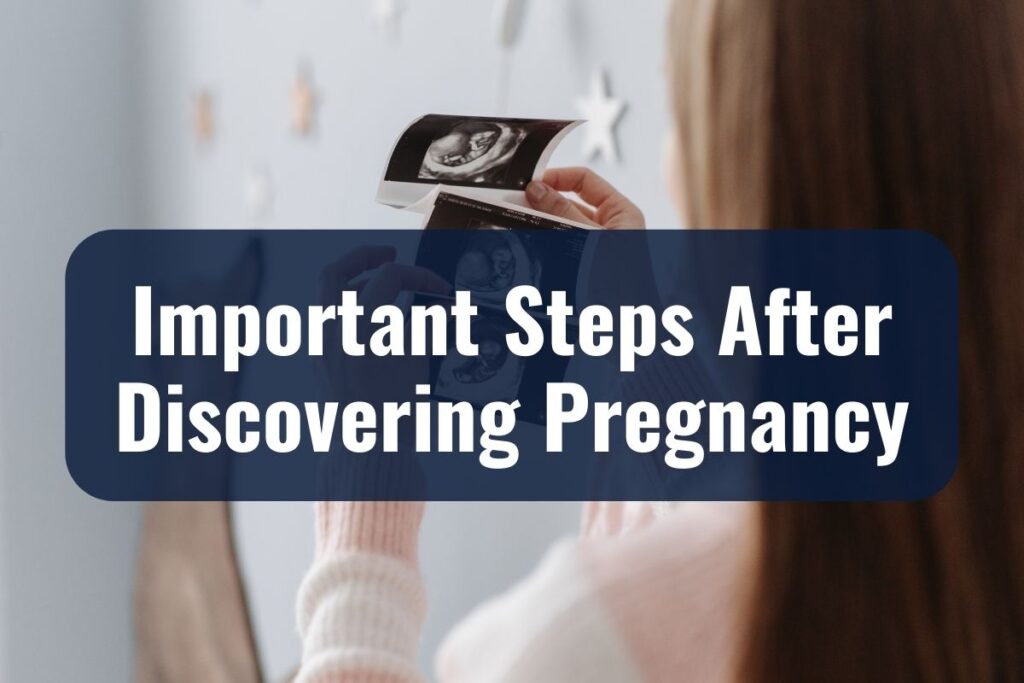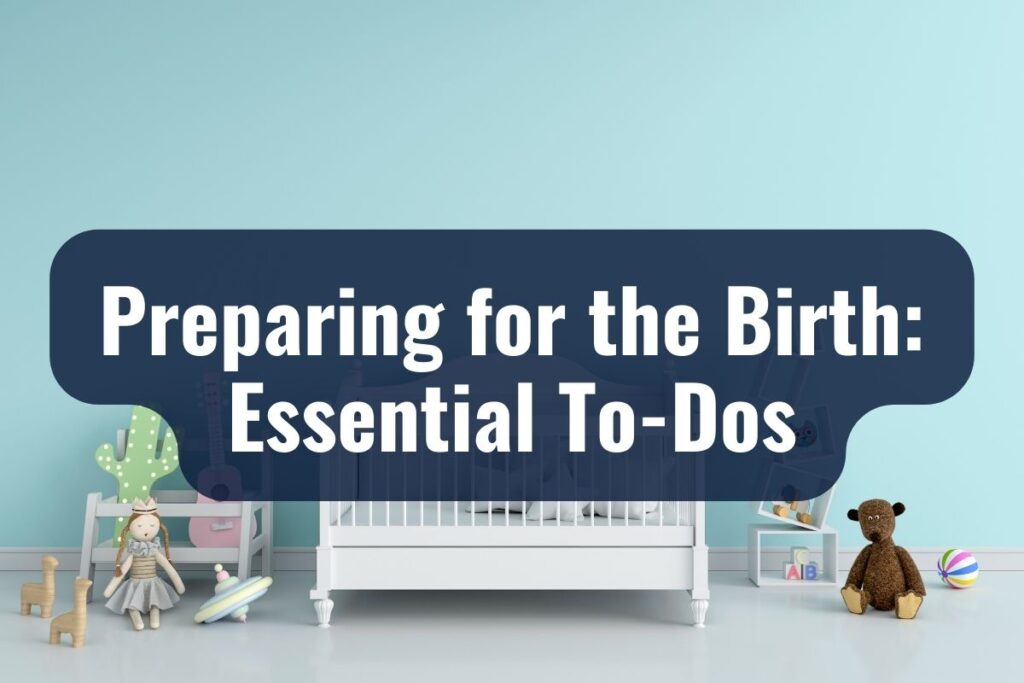First and foremost, let’s alleviate a common concern: the Netherlands boasts one of the highest standards of maternal care in the world. The Dutch approach, rooted in both traditional and modern healthcare advancements, aims to provide a holistic and patient-centered experience for expectant mothers.
Whether you’re familiar with the system or it’s your first time navigating pregnancy in a foreign land, this guide is here to support you. Together, we’ll explore everything from prenatal care to postnatal traditions, ensuring you feel informed, prepared, and embraced by the Dutch way of celebrating new life. Welcome to your journey of pregnancy in the Netherlands!
Key Takeaways
- The Netherlands offers a holistic approach to pregnancy with comprehensive prenatal and postnatal care.
- The Dutch healthcare system for pregnancy is supportive, emphasizing natural childbirth.
- Upon discovering the pregnancy, registration with a midwife and understanding insurance coverage is vital.
- Prenatal care includes regular check-ups, ultrasounds, and customized birth plans.
- Dutch childbirth emphasizes minimal medical intervention, valuing the mother’s choices.
- The Netherlands ensures strong work rights for pregnant women, including generous maternity leave.
Understanding the Dutch Healthcare System for Pregnancy
Embracing the journey of pregnancy in a new country can be both exhilarating and a tad overwhelming. The Dutch healthcare system, with its unique blend of tradition and cutting-edge healthcare practices, is designed to ensure the well-being of both the mother and the child. Here’s a closer look at how it all unfolds:
Primary Care from General Practitioners (huisarts)
In the Netherlands, your general practitioner (GP) or “huisarts” is the cornerstone of your medical care. For many foreigners, it might be surprising to learn that GPs play an integral role even in maternal care.
When you first suspect you’re pregnant, it’s a good idea to inform your GP, although it’s not mandatory. They can provide initial guidance, answer preliminary questions, and direct you to the right professionals as your pregnancy progresses.
Role of Midwives (verloskundigen)
Perhaps one of the most distinguishing features of Dutch prenatal care is the central role of midwives, known locally as “verloskundigen.” For low-risk pregnancies (which most are), midwives are often the primary caretakers throughout the pregnancy journey.
They are highly trained professionals who offer a range of services from prenatal check-ups and guidance on childbirth options to postnatal care. Building a trusting relationship with your midwife can enhance your pregnancy experience, making it feel more personalized and reassuring.
When and Why You Might be Referred to an Obstetrician
While midwives handle the majority of pregnancies in the Netherlands, there are instances when the expertise of an obstetrician becomes necessary. If complications arise or if there are specific medical conditions that require specialized care, your midwife will coordinate a referral to an obstetrician at a hospital. This seamless collaboration ensures that every mother and baby receive the exact level of care they need.
Important Steps After Discovering Pregnancy

The moment you discover you’re pregnant, you can be filled with a whirlwind of emotions, from elation and excitement to a touch of anxiety about the steps ahead. If you’re in the Netherlands and wondering what comes next, rest assured: the Dutch healthcare system has a structured yet flexible pathway designed just for you. Let’s walk through the essential steps to take after your joyous discovery:
1. Registering with a Midwife
Your midwife, or “verloskundige”, will be a significant figure in your pregnancy journey. After confirming your pregnancy with a home test, the next step is to register with a midwifery practice.
In many areas, you won’t need a referral from your GP to do this. These professionals offer both medical guidance and emotional support, ensuring you feel cared for at every phase.
2. Scheduling the First Prenatal Appointment
Typically, your first prenatal check-up with your midwife is scheduled around the 8th to 10th week of your pregnancy. This appointment is an opportunity to discuss any questions or concerns and to understand more about the care you’ll receive throughout your pregnancy.
3. Understanding the Prenatal Screening Program in the Netherlands
The Dutch healthcare system offers optional screenings for expecting mothers to assess the health and development of the fetus. These include the combined test (for Down, Edwards, and Patau syndromes) and the 20-week ultrasound (anomaly scan).
Your midwife will provide comprehensive information about these screenings, allowing you to make informed decisions based on your circumstances and preferences.
Prenatal Care in the Netherlands
The magical journey of pregnancy is one filled with growth, transformation, and profound moments of connection with the life blossoming within you. Prenatal care, at its heart, is designed to nurture this journey, ensuring the well-being of both mother and child.
The Netherlands, renowned for its holistic and patient-centered approach, has structured its prenatal care to be both comprehensive and deeply supportive. Here’s a glimpse into what prenatal care looks like in this beautiful nation:
1. Frequency and Purpose of Prenatal Check-ups
Regular check-ups are a cornerstone of prenatal care. Beginning with the first appointment around the 8th to 10th week, expectant mothers will typically have appointments every four weeks.
As the pregnancy progresses, these visits become more frequent. Each check-up is an opportunity for midwives to monitor the health of the baby and the mother, addressing any concerns and ensuring the pregnancy is progressing smoothly.
2. Ultrasounds (echo)
Ultrasounds, or ‘echo’ as they’re called in Dutch, are pivotal moments where you get to see your growing baby. The first ultrasound usually takes place around 10 to 12 weeks, confirming the pregnancy’s viability and determining the due date.
Another essential scan is the 20-week ultrasound, which checks for any anomalies and ensures the baby’s organs are developing well. Additional ultrasounds might be scheduled based on individual needs.
3. Blood Tests and Other Routine Check-ups
Blood tests play a vital role in assessing both the mother’s and baby’s health. Typically, an initial blood test will determine blood type, Rhesus factor, and check for infectious diseases like hepatitis B, syphilis, and HIV. Depending on the circumstances, additional tests may be suggested by the midwife or doctor.
4. Discussing Birth Plan and Preferences with Your Midwife
Around the 30th week, conversations often shift towards childbirth. The Dutch system highly values the wishes and comfort of the expectant mother. During your appointments, you’ll have the chance to discuss your birth plan, explore pain management options, and express any preferences or concerns about the upcoming birth.
The Dutch Perspective on Childbirth

Childbirth is a profoundly transformative experience, a dance between nature, intuition, and medical wisdom. The Netherlands has long held a unique perspective on childbirth, one that interweaves tradition with contemporary practices, always centered on the well-being and autonomy of the mother. Let’s delve into the Dutch approach to welcoming new life:
1. Home Births vs. Hospital Births
Making an Informed Choice: Historically, home births have been a significant part of Dutch culture. While the trend has shifted somewhat over the years with more women opting for hospital births, the Netherlands still has one of the highest home birth rates in the Western world.
The key here is choice. Mothers are encouraged to choose the environment in which they feel most comfortable and safe. If you’re considering a home birth, rest assured that Dutch midwives are expertly trained to guide home deliveries safely.
2. The Role of the Doula or Birth Coach
While midwives play a crucial medical role in the birthing process, doulas or birth coaches offer emotional and physical support during labor. Their role is to enhance the childbirth experience, providing comfort techniques, emotional reassurance, and advocacy. While not every mother opts for a doula, those who do often speak of the invaluable support and empowerment they offer.
3. Pain Management Options: Understanding the Dutch Approach
The Dutch perspective on pain management is somewhat different from that of other countries. There’s a prevailing belief in the natural process of childbirth, and as a result, epidurals and other pain-relieving interventions are less routinely administered.
However, they are available for those who desire or require them. It’s essential to discuss your pain management preferences and concerns with your midwife or obstetrician, ensuring that your birthing experience aligns with your wishes and needs.
Maternity Leave and Work Rights
Balancing the joys of impending motherhood with the responsibilities of work can be a juggling act. However, the Netherlands offers a supportive framework that recognizes the significance of this transformative phase in a parent’s life.
Designed to ensure the well-being of both mother and child, Dutch policies prioritize giving families a robust start. Here’s what you need to know about maternity leave and work rights in the Netherlands:
1. Statutory Maternity Leave
Duration and Benefits: In the Netherlands, expectant mothers are entitled to a total of 16 weeks of maternity leave, known as ‘zwangerschapsverlof’ and ‘bevallingsverlof’. This leave can commence up to 6 weeks before the due date, but at least 4 weeks before.
The remaining weeks are taken after the birth. During this period, mothers typically receive 100% of their wages, paid via the Employee Insurance Agency (UWV) and capped at a daily maximum amount.
2. Notification Requirements to Employers
For a smooth transition and to ensure you receive all your entitlements, it’s essential to inform your employer about your pregnancy at least three weeks before you wish to start your maternity leave. Sharing the news earlier can also help in planning work transitions and accommodating any pregnancy-related needs you might have.
3. Paternity Leave for Partners
Recognizing the invaluable role of partners during this time, the Netherlands has provisions for paternity leave, known as ‘geboorteverlof’. Partners are entitled to one week of leave immediately after the birth of the child, paid at 100% of their salary.
Additionally, they can avail up to five additional weeks of leave within six months of the birth, paid at 70% of their daily wage. This ensures that both parents have the opportunity to bond with the newborn and support each other.
Preparing for the Birth: Essential To-Dos

As the anticipation builds and the day approaches to welcome your little one, it’s natural to have a mixture of emotions, from excitement to a touch of nervousness. Preparation can be the key to turning that nervous energy into confidence.
The Netherlands offers a beautiful blend of traditions and practicalities when it comes to childbirth. Here are some essential steps and considerations to help you get ready for the big day:
1. Crafting Your Birth Plan
A birth plan is a way for you to communicate your wishes and preferences for labor, delivery, and postpartum care. Whether you desire a home birth, specific pain management strategies, or particular post-birth rituals, outlining them in a plan ensures you and your healthcare team are aligned.
2. Packing a Hospital Bag (if opting for a hospital birth)
Even if you’re planning a home birth, it’s good to have a bag packed in case you need to be transferred to a hospital. Essentials include comfortable clothing, toiletries, snacks, items for relaxation, documentation, and a set of baby clothes.
3. Arranging Postnatal Support
The Netherlands has a lovely tradition called ‘kraamzorg,’ which is postnatal care provided at home by a specialized nurse. Ensure you register for kraamzorg during your pregnancy, as this service helps with baby care, checks on the mother’s health, and even offers guidance on breastfeeding.
4. Setting up a Baby Nursery or Sleeping Arrangements
Whether it’s a dedicated nursery or a cozy corner in your bedroom, ensure you have all the basics ready for your baby’s arrival: a safe sleeping place, diapers, baby clothes, and other essentials.
5. Attending Prenatal Classes
These classes can be invaluable in offering insights into the childbirth process, pain management techniques, breastfeeding guidance, and postnatal care. Many organizations offer these in English, catering to the expatriate community.
6. Understanding Health Insurance Coverage
Ensure that you’re familiar with what your health insurance covers regarding childbirth and postnatal care. It’s also a good time to consider any additional coverage or adjustments that may be needed.
7. Organizing Transportation
If you’re planning a hospital birth or might need to go to the hospital suddenly, have a plan in place for transportation. Whether it’s your vehicle or a reliable taxi service, ensure you know the quickest route to your chosen hospital or birthing center.
Postnatal Care: What to Expect
The euphoria of welcoming your little one is often coupled with a cascade of new experiences, learnings, and adjustments. In the Netherlands, the postnatal period, known as the ‘kraamperiode’, is deeply cherished.
Recognizing the importance of support and care during this transformative time, the Dutch approach to postnatal care is holistic, compassionate, and designed to empower new parents. Here’s what you can anticipate in this tender phase:
1. Kraamzorg: The Dutch Gem
As mentioned before, ‘kraamzorg’ is one of the most unique and invaluable postnatal services in the Netherlands. A specialized kraamverzorgster (maternity nurse) will assist you at home for the first eight days after childbirth.
From guiding you on baby care, ensuring your recovery, and sometimes even helping with light household chores, this service ensures a smooth transition to parenthood.
2. Mother’s Health Check-ups
Your well-being is paramount. Regular check-ups with your midwife will monitor your physical recovery, discuss any emotional changes, and address queries about postpartum topics like breastfeeding, wound care, or physical activity.
3. Baby’s First Check-ups
Your newborn will have several health checks in the first week. These include the heel-prick test, which screens for rare metabolic disorders, and the hearing test. Both tests are usually conducted at home by professionals.
4. Registering Your Newborn
Within three days of your baby’s birth (excluding weekends and public holidays), you’ll need to register the birth at your local municipality (‘gemeente’). Ensure you have all necessary documentation, and check in advance about making an appointment.
5. Breastfeeding Support
Breastfeeding is a personal choice, and whatever decision you make, there’s a wealth of support available. Lactation consultants, midwives, and the kraamverzorgster can offer guidance, address challenges, and provide resources to ensure successful breastfeeding if you choose this route.
6. Emotional Well-being and Postpartum Depression
It’s natural to experience a whirlwind of emotions post-childbirth. While ‘baby blues’ are common, it’s crucial to recognize signs of postpartum depression. The Dutch healthcare system is vigilant about maternal mental health, so don’t hesitate to seek support from your midwife, GP, or counselor if you feel persistently low, anxious, or overwhelmed.
7. Social and Peer Support
Joining mother-and-baby groups or international expat communities can offer camaraderie, shared experiences, and valuable insights. These groups can be a source of encouragement and a way to forge new friendships during this new chapter.
Navigating Challenges as a Foreigner

Moving to a new country and adapting to its culture can be both exhilarating and challenging. When coupled with the transformative experience of pregnancy and childbirth, it’s natural to encounter moments of uncertainty or feeling overwhelmed.
The Netherlands, with its rich tapestry of traditions, healthcare excellence, and a warm embrace of diversity, offers support at every juncture. However, there are nuances to consider as a foreigner. Here’s a guide to help you navigate some of these challenges:
1. Language Barrier
While many Dutch healthcare professionals speak English fluently, there might be instances where language becomes a slight hurdle.
Consider carrying a Dutch-English medical dictionary or using translation apps. Some hospitals or clinics may offer interpreter services; don’t hesitate to ask. If possible, bring along a Dutch-speaking friend or partner during important consultations.
2. Cultural Differences
Understanding Dutch views on childbirth, pain management, or postnatal practices can help align your expectations.
Attend prenatal classes tailored for foreigners or expats. These classes often address cultural differences and help bridge the gap.
Engage in open communication with your midwife or doctor about your cultural or personal preferences and concerns.
3. Building a Support System
Being far from home, you might miss your familiar support system.
Connect with expat groups or international parents’ networks. These communities can provide companionship, shared experiences, and valuable resources.
Consider hiring a doula or birth coach who can provide emotional and physical support tailored to your unique needs.
4. Navigating the Healthcare System
The Dutch healthcare system might differ from what you’re accustomed to.
Stay informed by reading English resources on Dutch healthcare and maternity practices. Always ask questions during medical consultations. Being informed is key to feeling empowered and making the best decisions for your family.
5. Paperwork and Documentation
Dealing with administrative tasks in a foreign language can be daunting.
Keep a folder of all essential documents related to your pregnancy and childbirth. Seek assistance from local expat services or your consulate for guidance on birth registration or any international documentation requirements.
6. Embracing Traditions and Creating Your Own
The Dutch have lovely traditions surrounding childbirth, like serving ‘beschuit met muisjes’ (rusk with aniseed sprinkles) to celebrate a birth.
Embrace these customs as a way of immersing yourself in the culture. At the same time, introduce and celebrate your traditions, making your childbirth experience a blend of cultures and personal significance.
Essential Resources for Pregnant Foreigners in the Netherlands
| Type of Resource | Examples |
| Prenatal & Parenting Classes | ACCESS, BabyBeGood |
| Healthcare Institutions | KNOV, Dutch Healthcare Authority (NZa) |
| Support & Peer Groups | Amsterdam Mamas, Expat Mom Amsterdam |
| Translation Services | Tolk en Vertaalcentrum Nederland (TVcN) |
| Mental Health Support | Mindful Birth, Expat Therapy Amsterdam |
| Online Forums & Platforms | IamExpat, Expatica |
| Books & Guides | “The Happiest Kids in the World” |
| Essential Hotlines | Emergency Services (112), Childbirth Crisis Hotlines (Korrelatie) |
ACCESS: A non-profit organization catering to the international community in the Netherlands, they offer childbirth preparation classes in English.
BabyBeGood: Workshops and information sessions focused on sustainable and healthy parenting.
KNOV (Koninklijke Nederlandse Organisatie van Verloskundigen): The Royal Dutch Organization of Midwives. Their website provides valuable insights into prenatal care, childbirth, and postnatal care.
Dutch Healthcare Authority (NZa): It’s a good place to understand your rights, healthcare insurance details, and the services available to you.
Tolk en Vertaalcentrum Nederland (TVcN): Offering interpreter services, especially for medical consultations. It can be an invaluable resource if you’re facing language barriers.
Mindful Birth: They specialize in supporting emotional well-being during pregnancy and postpartum, offering services like mindfulness courses, therapy, and support groups.
Expat Therapy Amsterdam: Catering specifically to foreigners, they understand the unique challenges faced by expats and offer specialized mental health support.
Emergency Services: Dial 112 for immediate medical emergencies.
Childbirth Crisis Hotlines: Organizations like Korrelatie offer helplines for those feeling overwhelmed or in distress due to pregnancy or postpartum challenges.